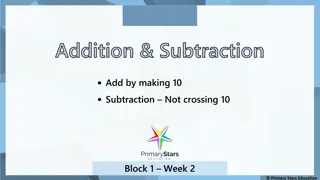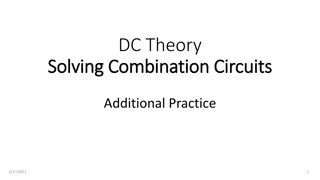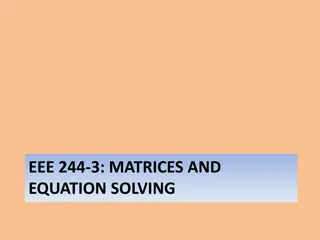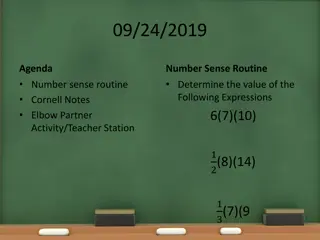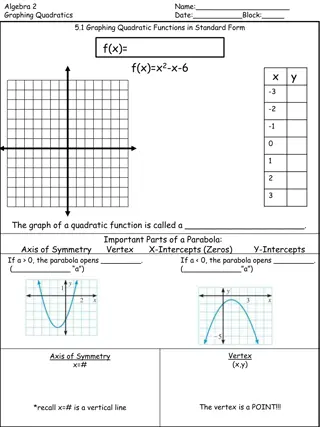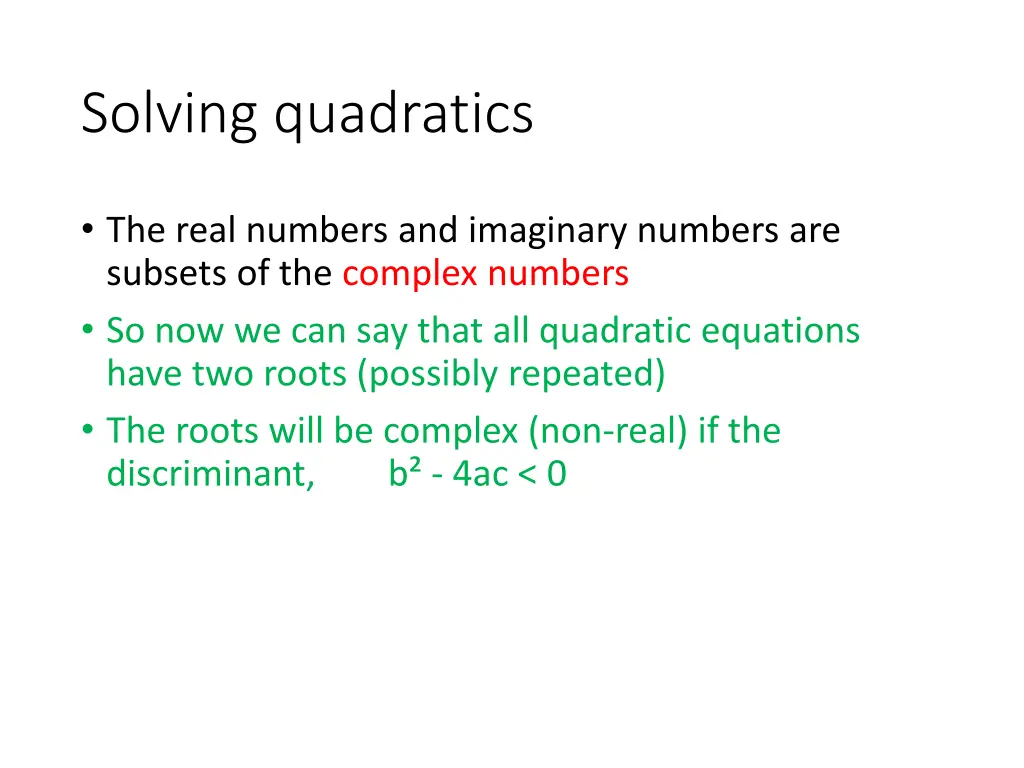
Complex Numbers in Quadratic Equations
Explore the nature of roots in quadratic equations, solve equations with complex roots, understand complex conjugates, and discover properties of complex numbers. Dive into conjugate pairs, complex roots of quadratics, and conjugate pairs of roots in polynomial equations with real coefficients.
Download Presentation

Please find below an Image/Link to download the presentation.
The content on the website is provided AS IS for your information and personal use only. It may not be sold, licensed, or shared on other websites without obtaining consent from the author. If you encounter any issues during the download, it is possible that the publisher has removed the file from their server.
You are allowed to download the files provided on this website for personal or commercial use, subject to the condition that they are used lawfully. All files are the property of their respective owners.
The content on the website is provided AS IS for your information and personal use only. It may not be sold, licensed, or shared on other websites without obtaining consent from the author.
E N D
Presentation Transcript
Solving quadratics The real numbers and imaginary numbers are subsets of the complex numbers So now we can say that all quadratic equations have two roots (possibly repeated) The roots will be complex (non-real) if the discriminant, b - 4ac < 0
Examples Determine the nature of the roots of these equations a. x + 4x 5 = 0 b. x 4x + 5 = 0 c. x + 2x + 1 = 0
Solve these quadratic equations with complex roots: i. ii. iii. x 4x + 13 = 0 x 2x + 6 = 0 x - 2x + 33 = 0 What do you notice about the pairs of solutions? Why does this happen? Irrational Roots
The complex conjugate For any complex number z = a + bi, there is a complex conjugate z* = a bi If z = 1 + 3i and w = -6 7i, find: a) z* b) w* c) (z w)*
Properties of complex conjugates: Properties of complex conjugates: For any complex number z = a + bi, a, b real What are the results for the following? z + z* z z* z.z*
Properties of complex conjugates: Properties of complex conjugates: For any complex number z = a + bi, a, b real z + z* = 2a purely real z z* = 2bi purely imaginary z.z* = a + b purely real We have seen the usefulness of the last result in division of complex numbers
Complex roots of quadratics The quadratic equation z2 2z + 5 = 0 What are the solutions to this? z = 1 2i The roots of this equation are 1 + 2i and 1 - 2i - a conjugate pair. This gives a sum of 2 and product 5, both real.
Conjugate pairs of roots It follows that: If a polynomial equation has real coefficients, then the complex roots occur in conjugate pairs.
One root of the quadratic equation ?2+ ?? + ? = 0, where p and q are real numbers, is 3 + 4i a) Write down the other root of the equation b) Find the value of p and the value of q FP1 textbook: Ex2.8 pp48-49 Q1-6 Q4-6 solutions

![[PDF] DOWNLOAD READ Diagnosis Solving the Most Baffling Medical Mysterie](/thumb/9855/pdf-download-read-diagnosis-solving-the-most-baffling-medical-mysterie.jpg)

